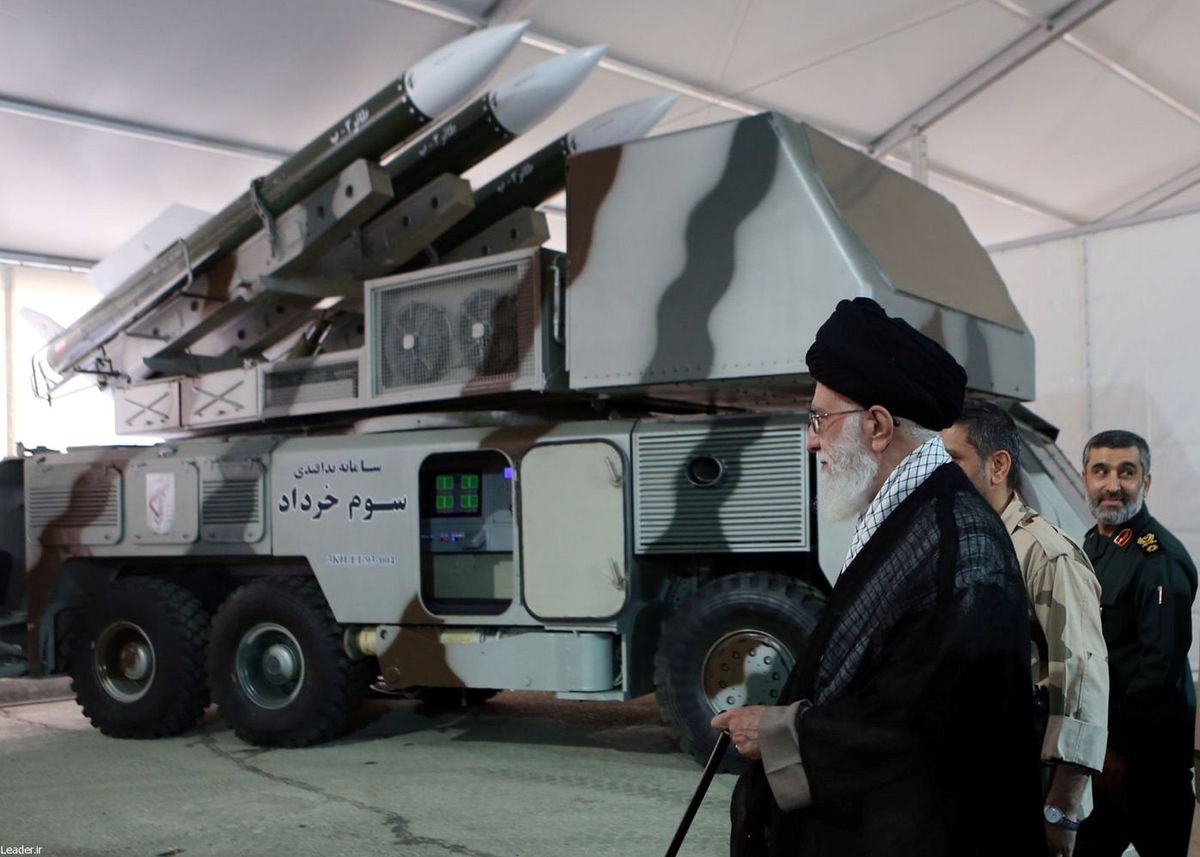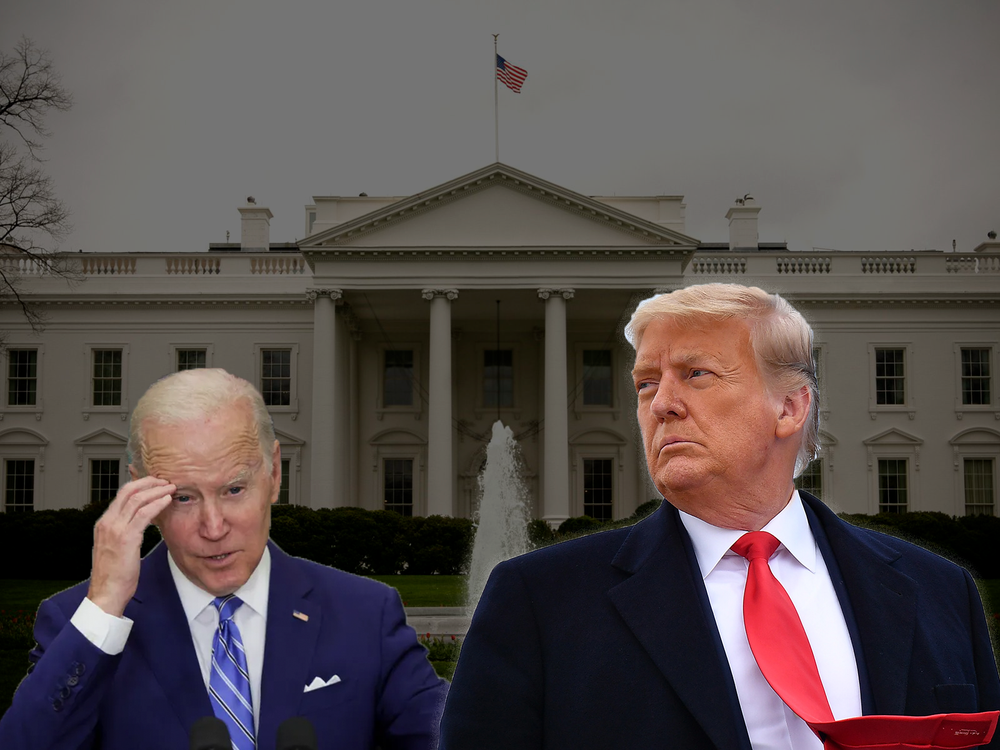
Senate Fails to Limit Trump War Powers
Political unease over the White House’s tough talk against Iran is reviving questions about President Donald Trump’s ability to order military strikes without approval from Congress.
The Senate fell short Friday, in a 50-40 vote, on an amendment to a sweeping Defense bill that would require congressional support before Trump acts. It didn’t reach the 60-vote threshold needed for passage. But lawmakers said the majority showing sent a strong message that Trump cannot continue relying on the nearly 2-decade-old war authorizations Congress approved in the aftermath of the Sept. 11, 2001, attacks. The House is expected to take up the issue next month.

“A congressional vote is a pretty good signal of what our constituents are telling us — that another war in the Middle East would be a disaster right now, we don’t want the president to just do it on a whim,” said Sen. Tim Kaine, D-Va., a co-author of the measure with Sen. Tom Udall, D-N.M. “My gut tells me that the White House is realizing this is deeply unpopular with the American public.”
The effort in the Senate signals discomfort with Trump’s approach to foreign policy. Four Republicans joined most Democrats in supporting the amendment, but it faces steep resistance from the White House and the Pentagon wrote a letter opposing it.

McConnell: 'Trump Derangement Syndrome'
Senate Majority Leader Mitch McConnell called it nothing more than another example of “Trump Derangement Syndrome,” which he explained as whatever the president’s for “they seem to be against.”
McConnell said putting restrictions on the White House would “hamstring” the president’s ability to respond militarily at a time of escalating tension between the U.S. and Iran.
“They have gratuitously chosen to make him the enemy,” McConnell said. “Rather than work with the president to deter our actual enemy, they have chosen to make him the enemy.”
Trump: No congressional approval needed
Trump’s approach to the standoff with Iran and his assertion earlier this week that he doesn’t need congressional approval to engage militarily has only sparked fresh questions and hardened views in Congress.
Trump tweeted last week that the U.S. came within minutes of striking Iran in response to its shooting down of an unmanned U.S. drone until he told the military to stand down. He said he was concerned over an Iranian casualty count estimated at 150.
“We’ve been keeping Congress abreast of what we’re doing … and I think it’s something they appreciate,” Trump told The Hill website. “I do like keeping them abreast, but I don’t have to do it legally.”
As the popular Defense bill was making its way through the Senate, Democrats vowed to hold back their support unless McConnell agreed to debate the war powers. The defense bill was roundly approved Thursday on a vote of 86-8.

Schumer urges Congress to act
Top Senate Democrat Chuck Schumer of New York assembled his caucus earlier this week. In a series of closed-door meetings he argued that Congress had ceded too much authority to presidents of both parties, according to a person granted anonymity to discuss the private sessions. Schumer said the amendment would prohibit funds to be used for hostilities with Iran without the OK of Congress.
Schumer also said that the American people are worried that U.S. and Iran are on a dangerous collision course and that even though Trump campaigned on not wanting to get the U.S. embroiled in wars he “may bumble us into one.”
“It is high time that Congress re-establishes itself as this nation’s decider of war and peace,” Schumer said on the Senate floor.

Romney counters
To counter the Democrats’ effort, Republican Sen. Mitt Romney of Utah pushed forward an alternative to Udall’s amendment that reaffirmed the U.S. can defend itself and respond to any attacks. But Romney said his version is not an authorization to use force against Iran.
“I fully concur with my Senate colleagues who desire to reassert our constitutional role,” Romney said on the Senate floor. But he warned that the Udall amendment goes too far. “The president should not have his hands tied.”
The debate over whether the legislative or executive branch has sole power over war-making depends on how one interprets the Constitution, experts said.
In recent years, the U.S. military has been deployed under old war authorizations passed in 2001 and 2002 for conflicts in Iraq and Afghanistan. Some lawmakers have pushed to pass new war powers acts, but none have materialized, though the House last week voted to sunset those authorizations.
Pompeo lists Iran's aggressions
In ticking off a list of Iranian acts of “unprovoked aggression,” Secretary of State Mike Pompeo recently asserted that a late May car bombing of a U.S. convoy in Kabul, Afghanistan, was among a series of threats or attacks by Iran and its proxies against American and allies interests. At the time, the Taliban claimed credit for the attack, with no public word of Iranian involvement.
Pompeo’s inclusion of the Afghanistan attack in his list of six Iranian incidents raised eyebrows in Congress. Pompeo and other administration officials have suggested that they would be legally justified in taking military action against Iran under the 2001 authorization.
That law gave President George W. Bush authority to retaliate against al-Qaida and the Taliban for the Sept. 11, 2001, terrorist attacks. It has subsequently been used to allow military force against extremists elsewhere, from the Philippines to Syria.
The Senate amendment addressed the question about how much Congress can restrict the president, said Scott R. Anderson, a legal expert at Brookings Institution.
“If they actually pass it, it would be very substantive because it would be putting limits on the president that have never been there before,” Anderson said.
Even though the measure failed to reach the 60 votes needed, the House will likely try to attach its own limits on military action in Iran with its Defense bill next month.
 Biden, Sanders, Harris Among 2nd Group of Democratic Hopefuls Set for Miami DebateNext PostCongress Fumes as Trump Allows Select US Firms to Supply Huawei
Biden, Sanders, Harris Among 2nd Group of Democratic Hopefuls Set for Miami DebateNext PostCongress Fumes as Trump Allows Select US Firms to Supply Huawei







